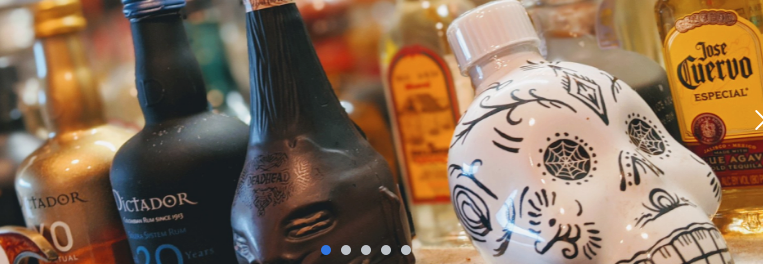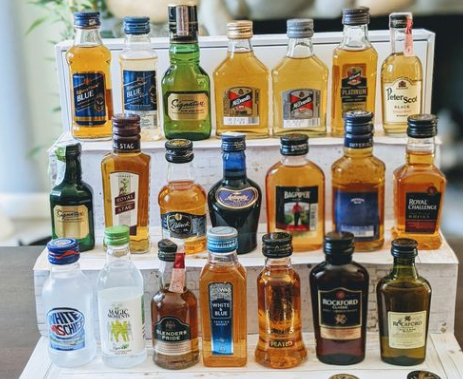
July 1st was not only the beginning of the second half of 2021. It was also the day that significant reforms to New Mexico’s Liquor Control Act became effective. The newly updated liquor laws are designed to economically assist New Mexico businesses and restaurants that have suffered as a result of the COVID-19 pandemic.
On January 20, 2021, District 15 Representative Dayan Hochman-Vigil (D) introduced the liquor reform legislation. Hochman-Vigil’s bill was debated robustly and revised significantly in both legislative bodies before it was finally passed. Then, on March 17th, 2021, Gov. Michelle Lujan Grisham signed the bipartisan bill into law.
Known as House Bill 255, the new law has several important components.
Home Delivery
Grocery stores, liquor stores, restaurants, craft distillers, small brewers and wineries may now obtain permits for the home delivery of adult beverages.
Not all rules and regulations controlling the home delivery of alcohol have yet been determined. Certainly included in these regulations will be mandatory ID checks. Also, to deliver alcohol, drivers will have to be 21 years or older, and deliveries will not be allowed at universities. Other proposed checks and balances are not yet cast in stone.
The public will have the opportunity to voice thoughts, opinions and concerns about the proposed new rules and regulations at a public hearing conducted later this month on July 26th by the Alcohol Beverage Control Division.
In addition to legalizing the home delivery of alcohol, the new law also authorizes and requires the New Mexico’s Department of Health to conduct a study about the effects of the home delivery of alcohol. This study will be evaluated in future years.
New Type of Liquor License
Under the reformed law a new type of license costing $10,000 is available to restaurants that already possess a beer and wine license and that serve a certain amount of food. After obtaining this new license, qualifying restaurants will be allowed to have “on-premises” service of alcoholic drinks. In the past a costly dispensers license was required for a restaurant to be able to sell and serve any type of hard liquor.
The new “on-premises” $10,000 license is controversial, especially with restaurant owners who hold dispensers licenses. The reason is that for decades the number of dispensers licenses available in the state has been strictly limited. Because of their finite number, existing dispensers licenses are quite valuable. It has been known for a new business to pay as much as $500,000 to buy an existing dispensers license. Right now a limited number of dispensers licenses are for sale online via auction with an opening bid of $350,000. These licenses cannot be transferred between counties, and no licenses are being offered for sale in Lea County.
The new breed of $10,000 licenses makes costly dispensers licenses less attractive on the open market, and dispensers license owners are vocal that the new law is significantly decreasing the value of these licenses. To offset this concern and recognize the significant monetary investment that current dispensers license holders have previously made, lawmakers, under the new law, are offering these businesses special protections, including but not limited to significant tax deductions.
Change In Sunday Hours
Until several years ago the sale of alcohol on Sundays in New Mexico was illegal. Then, over time, its sale was allowed after noon. Finally, a few years ago, legislation was passed allowing restaurants and bars to sell alcohol starting at 11:00 am on Sundays. Now, with the passage of HB 255, the selling of alcohol is authorized from 7:00 am onward on Sundays, just like every other day.

Other Changes
Another noteworthy change with the reform act is the prohibition of the sale of miniature bottles (3 fluid ounces or less) for “off-site” consumption. However, the law allows these little bottles to be sold where they are consumed “on-premises” like via hotel mini bars, at golf courses and on airplanes.
Specifically in McKinley County, the new law prohibits the sale of liquor at gas station convenience stores. This ban is the result of an amendment introduced by District 4 Senator George Muñoz (D). According to Muñoz, people in McKinley county die of alcoholism, and the fact that alcohol is legal does not mean that it should be available everywhere. However, the state is already being sued regarding the constitutionality of the McKinley County ban.
The goal of both Governor Grisham and state legislators with the new Liquor Control Act is to help New Mexico’s hospitality sector get back on its feet after the many set backs and challenges it has faced with the COVID-19 pandemic. Providing more equity, accessibility and affordability to the state’s liquor licensing laws is a start.
With the new law New Mexico cautiously joins Arizona, Georgia and Louisiana in legalizing home delivery. The hope is to, “… revitalize the hospitality industry, add flexibility for small business owners, and create entrepreneurial opportunities for New Mexicans,” states Andrew Vallejos, New Mexico’s Alcoholic Beverage Control Director.
Lawmakers, also, expect that through the institution of the $10,000 “alcohol” license for restaurants that are already licensed to serve beer and wine, profit margins will increase. “The cost of obtaining a dispenser license in conjunction with restaurant service has long been an obstacle for restaurants growth and has inhibited wage growth for tipped staff,” said HB 255 creator and proponent Representative Hochman-Vigil. None of this, of course, settles well with the restaurateurs who have paid dearly to have dispensers licenses.
The ability to sell alcohol is big business in New Mexico. Reforming outdated laws will possibly help revitalize the economy and assist small businesses in getting back on their feet after more than a year of difficult economic conditions caused by the COVID-19 pandemic.


